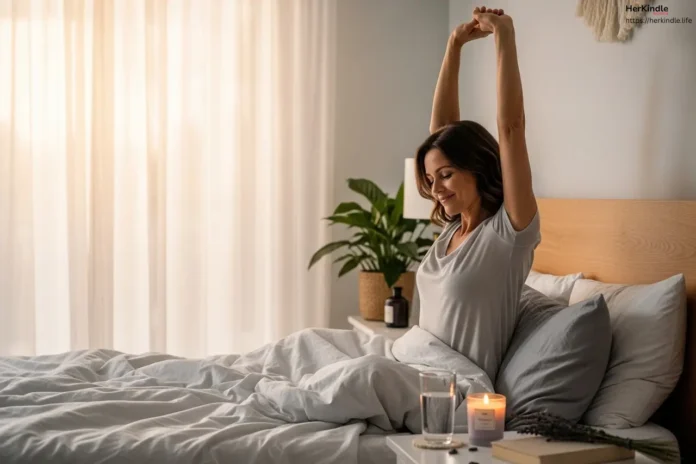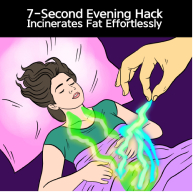In our fast-paced modern life, prioritizing quality sleep is more important than ever, especially for women over 35 who may be experiencing life transitions affecting their rest. Practicing effective sleep hygiene is key to unlocking better health by improving sleep quality and overall well-being. This comprehensive guide will explore expert-backed strategies including optimizing your sleep environment, maintaining a consistent sleep schedule, adopting beneficial lifestyle habits, and applying relaxation techniques designed specifically to encourage restful nights.
Creating Your Sleep Sanctuary — Optimizing the Sleep Environment
How Noise Affects Your Sleep
Unwanted noise is a common yet often overlooked disruptor of quality sleep. Traffic, household sounds, and environmental disturbances can fragment your rest and impact health over time. While completely eliminating noise may be impractical, strategic approaches can greatly improve your sleep satisfaction:
- Use white noise machines or smartphone apps that provide steady, soothing sounds like fan hums or nature sounds to mask disruptive noises.
- Employ heavy curtains and place furniture like bookshelves against shared walls to absorb sound.
- Establish quiet hours at home and coordinate with family members to minimize nighttime activity.
- Prepare your evenings in advance to reduce noisy kitchen or household chores at bedtime.
These measures help safeguard your rest even in noisy settings and support better daytime alertness.
The Power of Light and Darkness
Lighting plays a crucial role in regulating your body’s internal clock and melatonin production. Excessive or bright artificial light in the evening delays sleep onset and disrupts sleep cycles.
- Use blackout curtains to block external light effectively.
- Dim lights one to two hours before bedtime, preferably using warm-colored, low-intensity lamps.
- Avoid electronic screens that emit blue light close to bedtime or use blue light filters if usage is necessary.
Creating a dark, calming sleep environment primes your body to transition smoothly into restorative sleep.
Optimal Temperature and Air Quality
Maintaining the right bedroom temperature and fresh air quality can significantly influence sleep quality:
- Ideal temperature range for most adults is between 60°F and 65°F (15.5°C to 18.3°C) to support your body’s natural cooling during sleep.
- Older adults may prefer slightly warmer temperatures around 68°F to 77°F (20°C to 25°C).
- Use moisture-wicking bedding to help regulate temperature and consider air purifiers to reduce allergens and improve air quality.
A cool, clean, and comfortable bedroom environment supports deeper, uninterrupted sleep.
Fueling Rest — How Diet and Exercise Influence Sleep Quality
The Connection Between Lifestyle Habits and Sleep
Diet and physical activity form a foundation for healthy sleep. Regular moderate exercise enhances sleep onset and depth, while balanced nutrition supports your body’s sleep-regulating mechanisms.
- Aim for at least 30 minutes of moderate aerobic exercise daily, such as brisk walking, cycling, or swimming; avoid vigorous workouts close to bedtime.
- Incorporate tryptophan-rich foods (e.g., turkey, nuts), antioxidants, magnesium, and B vitamins to promote natural sleep.
- Limit saturated fats and reduce heavy or late meals that disrupt sleep architecture.
Together, these lifestyle habits create synergy that improves sleep quality and overall wellness.
Exercise and Sleep Disorders
Exercise not only benefits those with occasional poor sleep but also reduces symptoms of sleep disorders such as insomnia, obstructive sleep apnea, and restless legs syndrome by lowering pre-sleep anxiety and regulating sleep patterns.
The Rhythm of Rest — Establishing a Consistent Sleep Schedule
Why Sleep Schedule Consistency Matters More Than Duration
Emerging research confirms that maintaining a regular sleep schedule is more influential for health than simply the amount of sleep. Regular bedtimes and wake-up times:
- Stabilize your circadian rhythms for improved alertness and emotional resilience.
- Support cardiovascular, metabolic, and mental health.
- Reduce risks of chronic diseases and all-cause mortality.
Effective Strategies for Fixing Your Sleep Schedule
- Set fixed bedtimes and wake-up times ideally allowing for 7-9 hours of sleep, including on weekends.
- Make gradual adjustments in 15-30 minute increments if you need to shift your schedule.
- Use alarms or reminders for bedtime and morning wake up.
- Supplement with melatonin supplements if necessary, taken 30-60 minutes before bed, but consult a healthcare provider for long-term use.
- Control light exposure by getting morning sunlight to reinforce wakefulness and limiting evening light to boost melatonin.
Consistency aligns your body’s internal clock, facilitating easier sleep onset and higher sleep quality.
Calm Your Mind — Relaxation Techniques to Enhance Sleep
Mental and Physical Relaxation Methods
Relaxation plays an essential role in overcoming stress-induced sleep difficulties. Some effective techniques include:
- Diaphragmatic Breathing: Slow belly-focused breathing activates relaxation.
- Progressive Muscle Relaxation (PMR): Systematically tensing and releasing muscle groups relieves physical tension and promotes sleep readiness.
- Guided Imagery and Meditation: Visualization of peaceful scenes combined with focused breathing calms the mind.
- Mindfulness Practices: Non-judgmental awareness of present sensations reduces stress and emotional reactivity.
Practical Incorporation
Integrate these techniques into your nightly routine 20-30 minutes before bedtime. Regular practice enhances their effectiveness, helping speed up sleep onset, deepen sleep stages, and reduce nighttime awakenings.
Breaking the Cycle — Identifying and Addressing Sleep Disruptors
Managing Screen Time
Evening exposure to screens has profound negative effects on sleep quality by suppressing melatonin and stimulating the brain.
- Establish a “screen curfew” at least one hour before bed.
- Replace screen time with relaxing activities like reading a physical book or gentle stretching.
Avoiding Alcohol and Caffeine Near Bedtime
- Alcohol might initially aid sleep onset but disrupts overall sleep architecture and fragments rest, often resulting in unrefreshing sleep.
- Caffeine can delay sleep onset and reduce deep sleep, even when consumed up to 6 hours before bedtime.
- Experts recommend avoiding caffeine 8-10 hours before sleep and alcohol at least 3 hours prior.
Recognizing and modifying these behaviors is essential to sustain improved sleep hygiene.
Conclusion: Empower Your Health Through Sleep Hygiene
Improving your sleep hygiene is a powerful, accessible pathway to better health and vitality. By creating an optimal sleep environment, maintaining a consistent sleep schedule, fueling your body with healthy lifestyle choices, and practicing relaxation techniques, you pave the way for restorative sleep every night.
As women over 35 balancing many life demands, dedicating intentional care to your rest can profoundly enhance your energy, focus, mood, and overall well-being.
Start implementing these expert sleep hygiene tips today to unlock the benefits of truly restful nights—for a healthier tomorrow.
Frequently Asked Questions (FAQs)
Sleep hygiene refers to daily practices and environmental factors that support consistent, restorative sleep. Good sleep hygiene improves sleep quality, overall health, and daytime functioning.
Focus on reducing noise with white noise machines, controlling light exposure with blackout curtains, maintaining a cool bedroom temperature (60-65°F), and ensuring good air quality.
Set fixed bedtimes and wake-up times, adjust gradually, limit screen use before bed, expose yourself to morning sunlight, and consider melatonin supplements after consulting a professional.
Techniques such as diaphragmatic breathing, progressive muscle relaxation, guided meditation, and mindfulness exercises can reduce anxiety and physical tension to promote restful sleep.
Caffeine consumed close to bedtime delays sleep onset and reduces deep sleep. Alcohol disrupts sleep cycles and causes fragmented sleep. Avoid these substances in the hours before bed for better rest.







